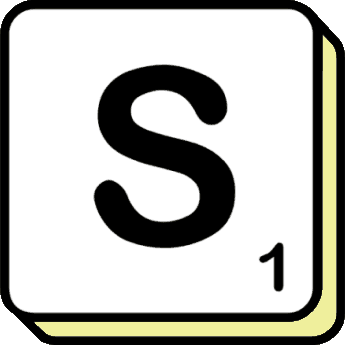Scrabble: Our Finest Hour, Reduced to a Triple Word Score
Author: Brian Bowman
Date Published: 19 January 2025
Ah, Scrabble. The paragon of intellectual games. The supposed battleground of wits, where letters transform into words, words into strategy, and strategy into smug self-satisfaction. Its the game where players assert their cerebral superiority by cobbling together words theyve never used in an actual sentence. If life is absurd, then Scrabble is its ultimate microcosm.

A Game of Aspirations and Petty Grievances
Lets face it: nobody plays Scrabble for fun. Not real fun, anyway. Its not Monopoly, where you can hide your misanthropy behind a smiling capitalist veneer as you bankrupt your family. No, Scrabble is the purest distillation of our fragile egos. Every play is a flex, a desperate plea for validation disguised as vocabulary prowess.
The board itself is a cruel joke - a perfectly organized 15x15 grid that promises fairness, but really, its just a playground for luck masquerading as skill. You've got a rack full of vowels? Congratulations, you're an artist trying to paint with mashed potatoes. Your opponent just happens to draw a Q and a U? Well, there goes your Saturday, sacrificed to the gods of random chance.
The Dictionary Dilemma
And lets talk about the dictionarythat bloated tome of human language, an alleged authority on what is and isnt a word. Its both the ultimate weapon and the final arbiter of Scrabble disputes. But heres the dirty secret: most of the words people play are the linguistic equivalent of lint. Qi, xi, aa, za are these words or the cries of someone being hit with a frying pan? No one knows, and no one cares, as long as they fit neatly on a triple letter score.
The cynic in me believes the dictionary exists not as a resource but as a tool for humiliation. Its there to remind you that no matter how clever you think you are, theres always a 2-letter word lurking that youve never heard of, ready to destroy your best-laid plans. Scrabble isnt about communication or creativity; its about who can exploit the English languages more arcane corners with ruthless efficiency.
The Players: Archetypes of Doom
Every Scrabble player falls into one of several archetypes, none of them flattering. Theres the Score Maximizer, who will spend 15 minutes calculating permutations just to eke out a seven-point lead. Then theres the Wordsmith Wannabe, who insists on playing aesthetic for 12 points when they could have dropped zax for 60. Lets not forget the Dictionary Zealot, who derives sadistic glee from challenging your perfectly valid word just to make you squirm.
And finally, theres the dreaded Casual Playerthe one who dares to suggest, mid-game, that its just a game. Just a game? Tell that to the person whos been sitting on QUIZZIFY for the last three rounds, desperately waiting for a Y to appear.
The Illusion of Intelligence
The cruelest irony of Scrabble is its pretense of intellectualism. Winning doesnt make you smart; it just means youve memorized more useless trivia than the person across the table. Nobody walks away from a Scrabble board enlightened. Nobody writes a novel because they played epoch for 24 points. The game doesnt enrich our lives; its just another excuse to compete, to prove, to conquer.
And yet, we come back to it. Again and again, we shuffle the tiles, we argue over the rules, we bask in the fleeting glory of a high-scoring bingo. Why? Because deep down, we know that Scrabble is a mirror, reflecting all our most human flaws: our vanity, our insecurity, our insatiable need to win. And maybe, just maybe, we love it for that very reason.
So go ahead, play your zymurgy and feel superior for a moment. Just remember: in the end, its not about the words. Its about the quiet, desperate yearning to matter, if only for a single turn.
And if you lose? Blame the tiles. Always blame the tiles.
